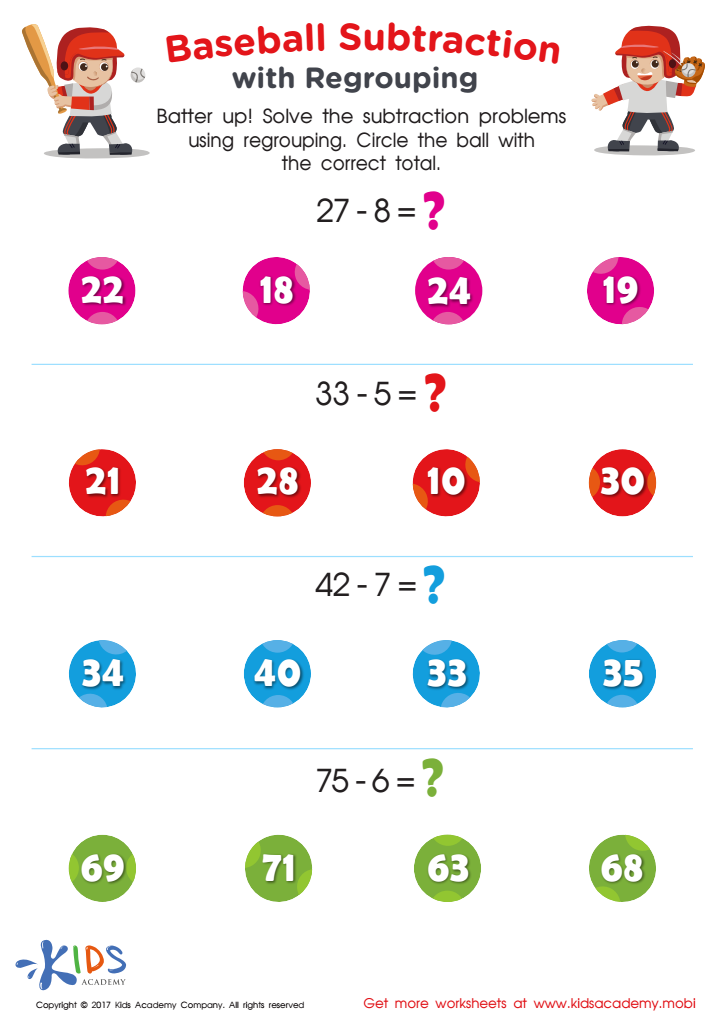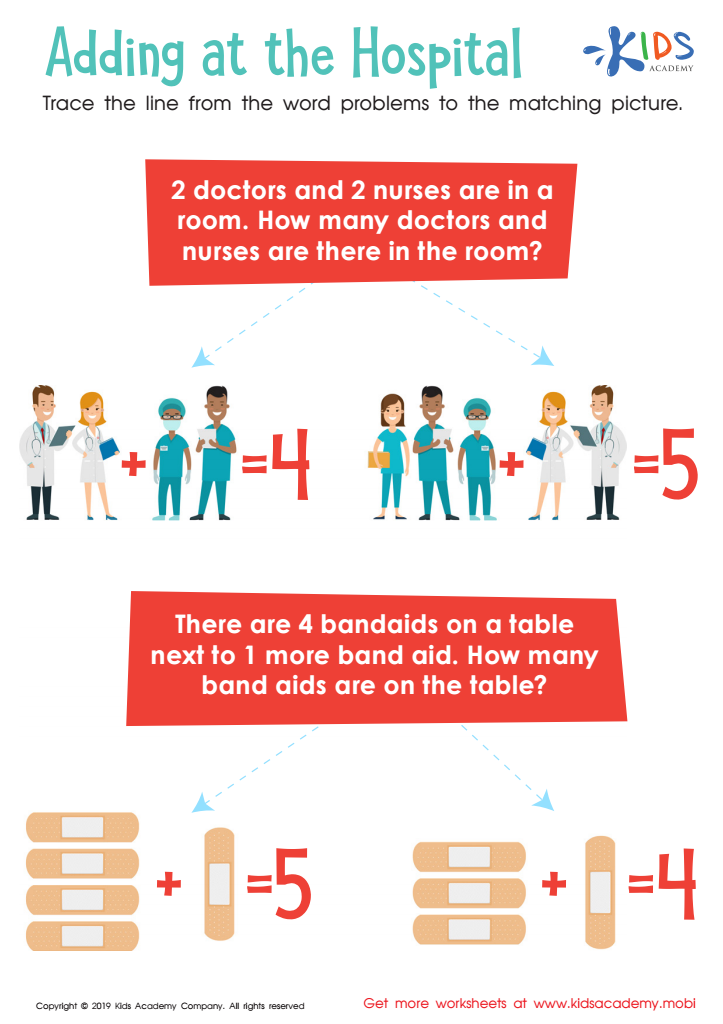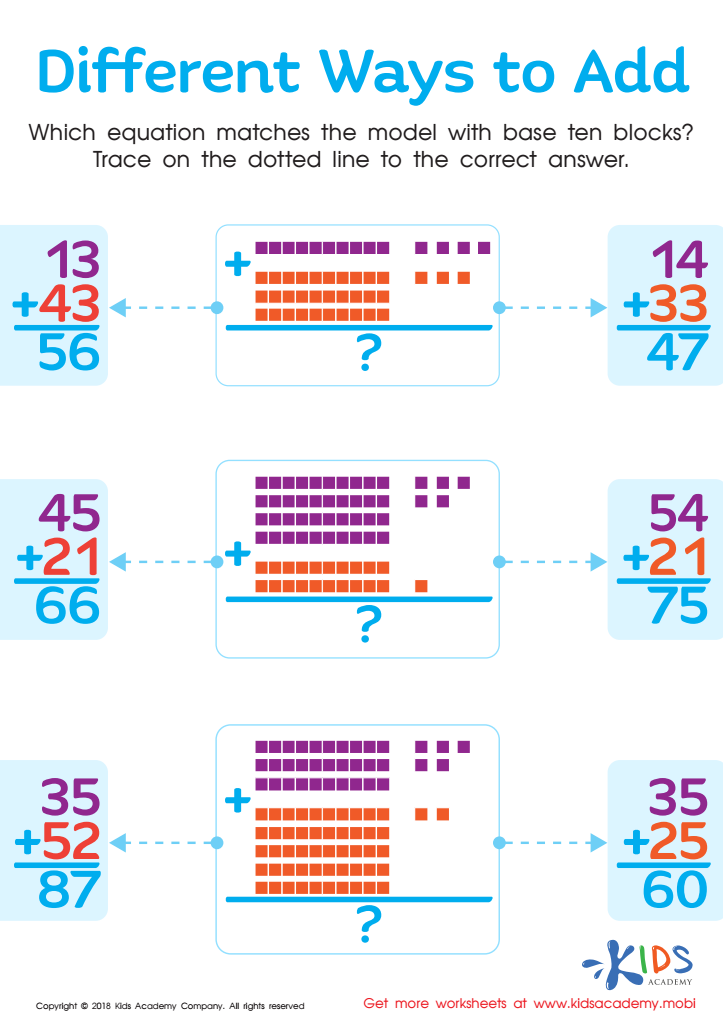Mental math practice Normal Math Worksheets for Ages 3-8
5 filtered results
-
From - To
Boost your child’s mathematical skills with our Mental Math Practice Worksheets, designed specifically for ages 3-8! These engaging and diverse normal math worksheets promote confident number recognition and problem-solving abilities through enjoyable activities. Perfect for home or classroom use, each worksheet focuses on developing essential mental math skills, making math fun and interactive. Featuring colorful illustrations and age-appropriate exercises, children will enhance their foundational understanding while honing their ability to compute quickly in their heads. Equip your child with the tools they need for mathematical success and watch their confidence soar as they master mental math concepts. Get started today!


Subtraction With Regrouping for 2nd Grade Worksheet


7 Continents and 7 Seas Worksheet


Adding at the Hospital Worksheet


Tricky Problems Worksheet: Part 2


Different Ways to Add Worksheet
Mental math practice is essential for children ages 3-8 as it lays the foundation for their overall mathematical understanding and cognitive development. This early stage of learning is crucial; children develop their ability to perform calculations in their heads, thereby enhancing number sense, memory, and problem-solving skills. Mental math encourages children to think critically and autonomously, allowing them to explore different strategies for solving mathematical problems without the reliance on calculators or paper.
Moreover, mental math fosters confidence in young learners. As they practice and successfully solve problems in their heads, they develop a positive self-image regarding their mathematical abilities. This confidence can translate to higher achievement levels in the future.
For parents and teachers, integrating mental math into daily routines can also enrich educational engagement. Fun, interactive games and challenges make the learning process enjoyable, freeing children from the anxiety often associated with traditional learning environments.
Lastly, mastering fundamental arithmetic operations through mental math helps ensure that children are better equipped for later, more complex mathematical concepts. Therefore, investing time in mental math practice is vital for nurturing a generation of mathematically adept, confident, and capable young minds.
 Assign to My Students
Assign to My Students





.jpg)
















